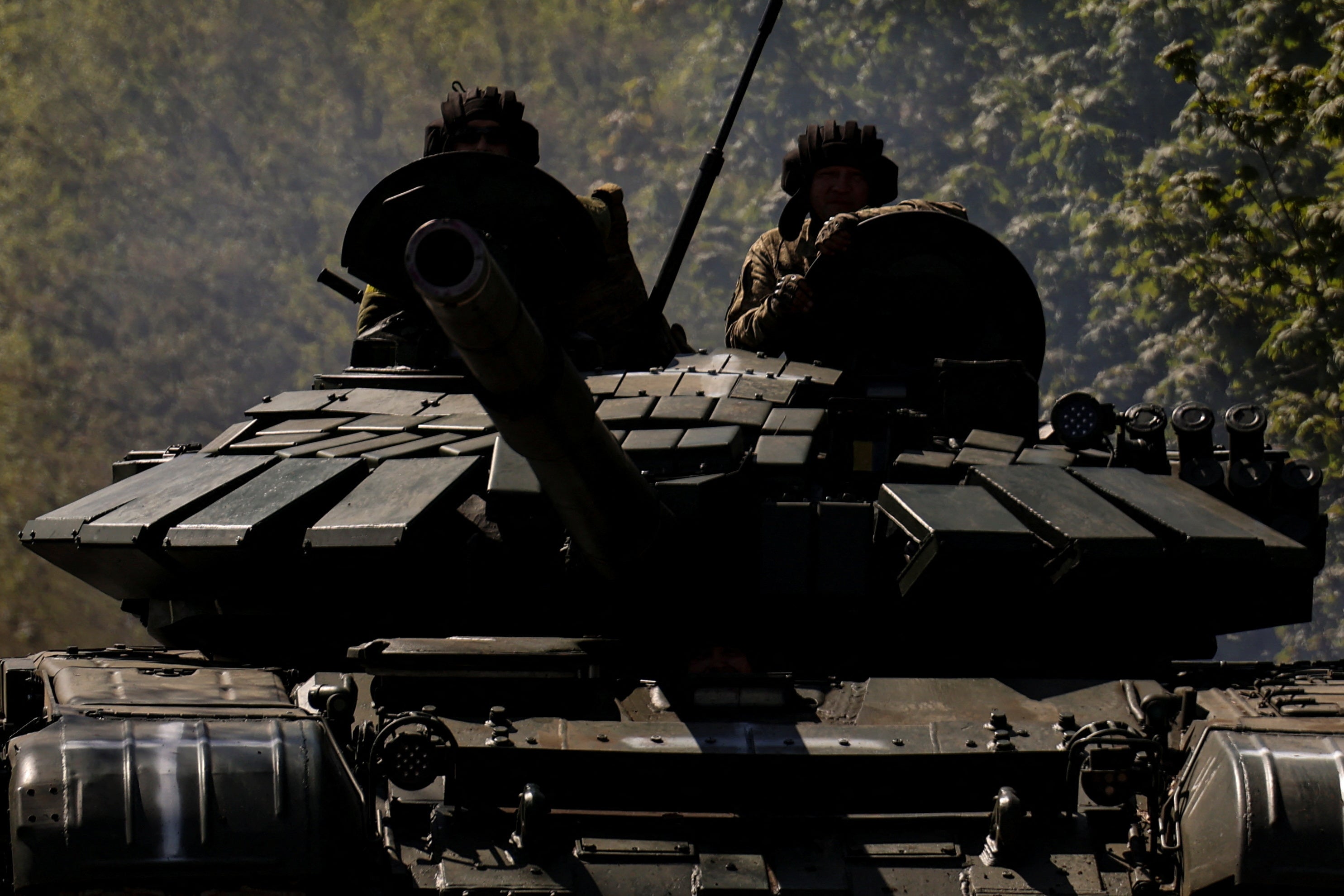As Bakhmut buckles, Zelensky must be free to speak on the world stage
Editorial: The city has taken on some of the status of Stalingrad during the Second World War

The capture of approximately two kilometres of territory by Ukraine around the ruined city of Bakhmut may not sound like a very significant military breakthrough, but it is of huge symbolic significance.
Fought over with a tenacity on both sides unusual even by the extreme standards of this most pitiless of wars, Bakhmut has taken on some of the status of Stalingrad during the Second World War; piles of rubble that neither side can afford to give up for fear of losing face and damaging morale both on the frontlines and on the home front.
Moscow believes that Bakhmut is the gateway to an advance into much more significant territory in Donetsk, such as Slovyansk and Kramatorsk. A sustained loss of territory would cause embarrassment, with it coming as Ukraine is growing in power and confidence with the assistance of Western armaments.
President Zelensky and his colleagues are carefully preparing for a proper counteroffensive that both Kyiv and its allies need to prove successful. The supply of sophisticated defensive weaponry, such as the missile defence systems, is blunting Russia’s strategy of massive bombardment of civilian areas. The Russians may soon be on the run again. Zelensky’s voice must be heard. It makes little sense to deprive him of a Eurovision platform. Our own prime minister has called on the competition’s organisers to reverse their ludicrous position.
Adding to Moscow’s worries is the mockery piled on the regular Russian forces by the Wagner mercenary group, supposed allies of the Kremlin.
With his usual maverick style, Yevgeny Prigozhin, the Wagner founder and ally of Vladimir Putin, has also spoken of Ukrainian advances, and has made no secret of his frustration and anger.
Calling it “the worst scenario”, Mr Prigozhin declared: “All the territories that were taken with the blood and lives of our comrades over many months, advancing tens or hundreds of metres a day, are now being thrown away practically without a fight by those who should be holding our flanks.”
Naturally, the Kremlin issued its usual denials, which may not even convince the Russian people that the “special military operation” is going their way. Despite the power of the Kremlin’s propaganda machine, it must be apparent to even the most fanatical devotee of President Putin that something has gone very wrong.
After all, had any of the Kremlin’s exaggerated claims over the past 15 months of combat been true then Mr Putin would have long since presided over his victory parades in Kyiv and Moscow, his glorious soldiers returning to be lauded in their hometowns. Instead, the body bags keep coming home to bereft Russian families.
This is not the beginning of the end, however. The war has settled into a pattern of attrition, pending the long-awaited Ukrainian counteroffensive. The Ukrainians have valour and high-quality equipment on their side; longer-range missiles, such as the Storm Shadow provided by Britain, are now being shipped eastwards. But the Russians have the numbers and, probably, air superiority.
In order to further tip the balance of power in Ukraine’s favour, the West needs to redouble its efforts: diplomatic, military and economic. China, above all, must be deterred from helping Russia break intentional economic sanctions and from supplying Russia with technology, parts and “dual purpose” materials such as drones, with which Russia can scale up their attacks on Ukraine.
The current talks between the US treasury secretary Janet Yellen and German finance minister Christian Lindner underscore the need for vigilance as Russia continues to court the likes of Iran and North Korea, experts in the field of dodging sanctions, to help it slip the net.
For understandable reasons, Western powers have been reluctant to donate their most advanced aircraft to Ukraine, but that has also left frontline tanks, armoured vehicles, missile systems and other kit more vulnerable to Russian predation.
Depriving Ukraine of the means to conduct a comprehensive all-systems campaign cannot be sensible and is especially foolish when the West’s own (expensive) equipment is at risk. This war can be won by Ukraine, at least in the sense that the Russians sue for peace, even if driving them entirely out of eastern Ukraine and Crimea becomes impractical.
As President Zelensky says, all wars eventually end in a deal, and when a peace settlement does become inevitable it is imperative that Ukraine is able to negotiate from a position of strength and territorial advantage. The “facts on the ground” have to be set firmly to further Kyiv’s interests. The more advances Ukraine makes this year, the more chance that it will recover its territorial integrity, and the greater the prospect of justice for the victims of Russian war crimes.






Join our commenting forum
Join thought-provoking conversations, follow other Independent readers and see their replies
Comments